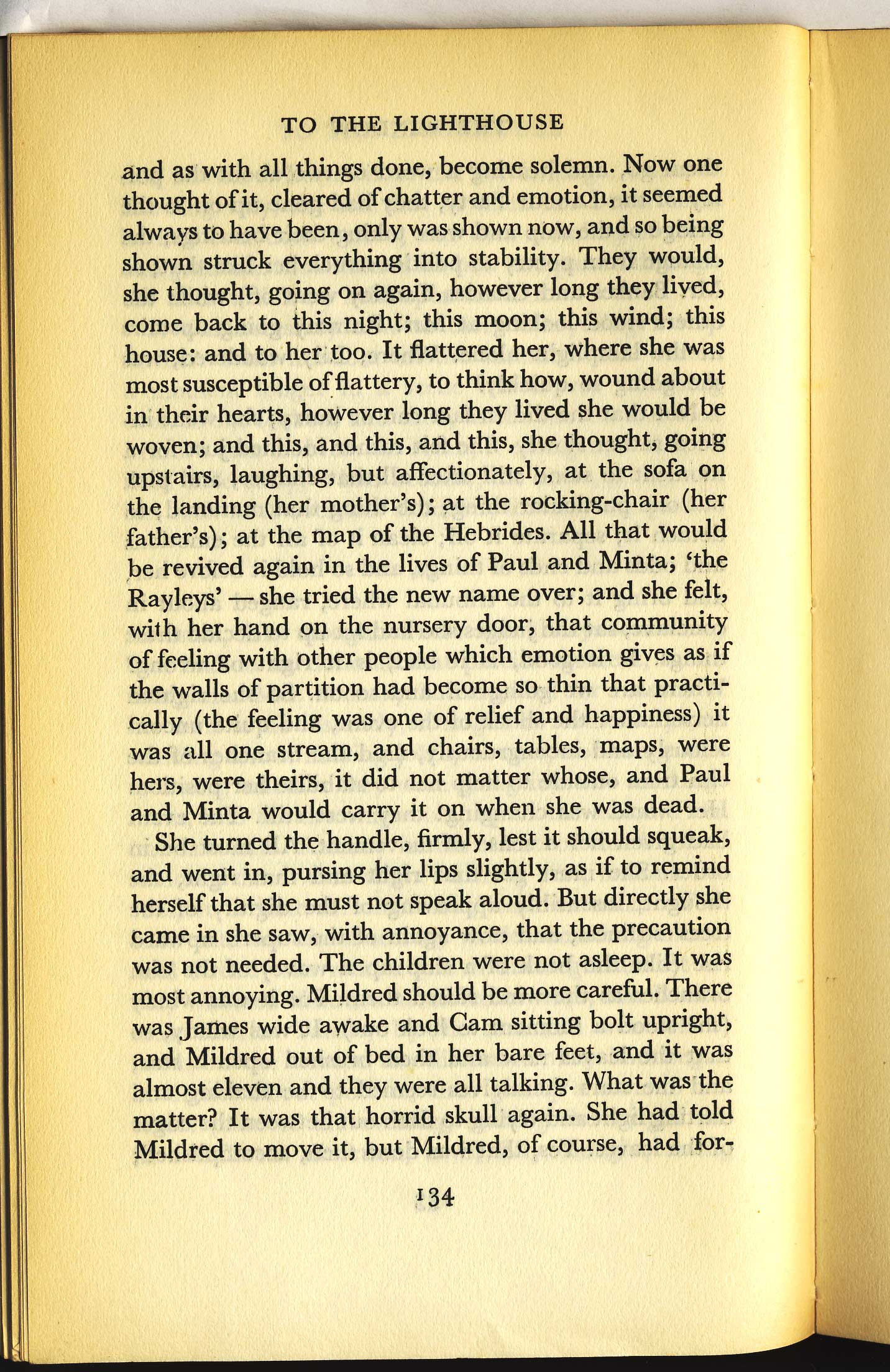
TO THE LIGHTHOUSEand as with all things done, become solemn. Now onethought of it, cleared of chatter and emotion, it seemedalways to have been, only was shown now, and so beingshown struck everything into stability. They would,she thought, going on again, however long they lived,come back to this night; this moon; this wind; thishouse: and to her too. It flattered her, where she wasmost susceptible of flattery, to think how, wound aboutin their hearts, however long they lived she would bewoven; and this, and this, and this, she thought, goingupstairs, laughing, but affectionately, at the sofa onthe landing (her motherŌĆÖs); at the rocking-chair (herfatherŌĆÖs); at the map of the Hebrides. All that wouldbe revived again in the lives of Paul and Minta; ŌĆśtheRayleysŌĆÖ ŌĆö she tried the new name over; and she felt,with her hand on the nursery door, that communityof feeling with other people which emotion gives as ifthe walls of partition had become so thin that practi-cally (the feeling was one of relief and happiness) itwas all one stream, and chairs, tables, maps, werehers, were theirs, it did not matter whose, and Pauland Minta would carry it on when she was dead.She turned the handle, firmly, lest it should squeak,and went in, pursing her lips slightly, as if to remindherself that she must not speak aloud. But directly shecame in she saw, with annoyance, that the precautionwas not needed. The children were not asleep. It wasmost annoying. Mildred should be more careful. Therewas James wide awake and Cam sitting bolt upright,and Mildred out of bed in her bare feet, and it wasalmost eleven and they were all talking. What was thematter? It was that horrid skull again. She had toldMildred to move it, but Mildred, of course, had for-134









